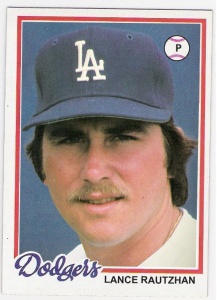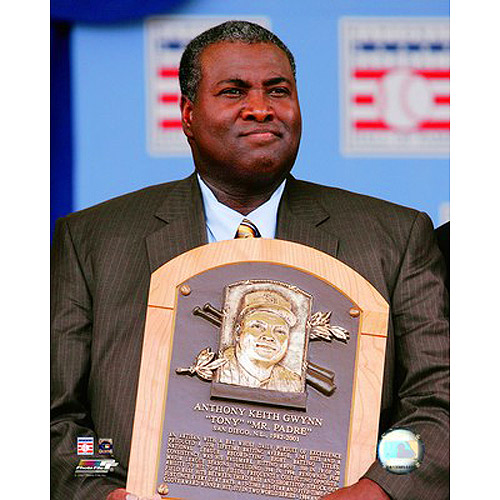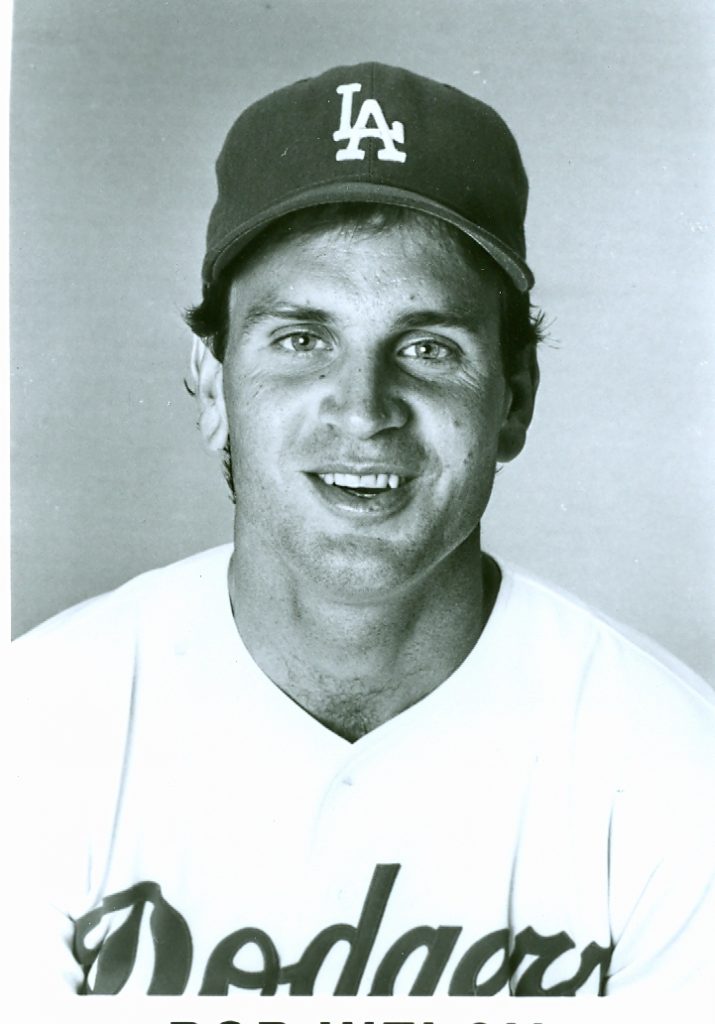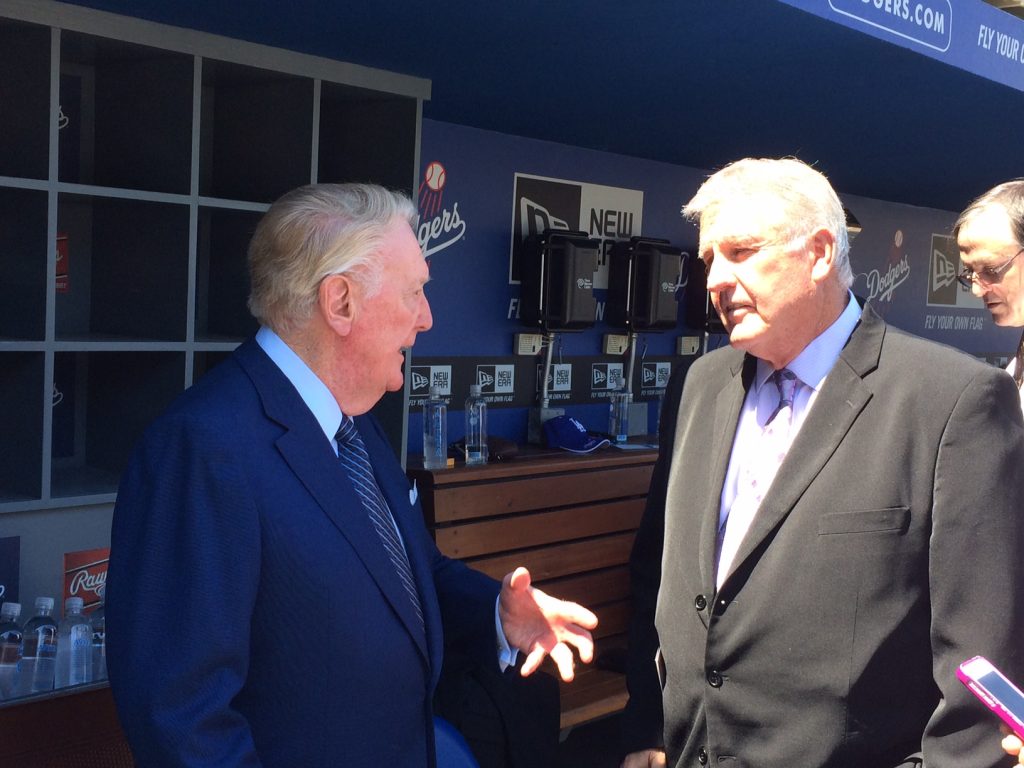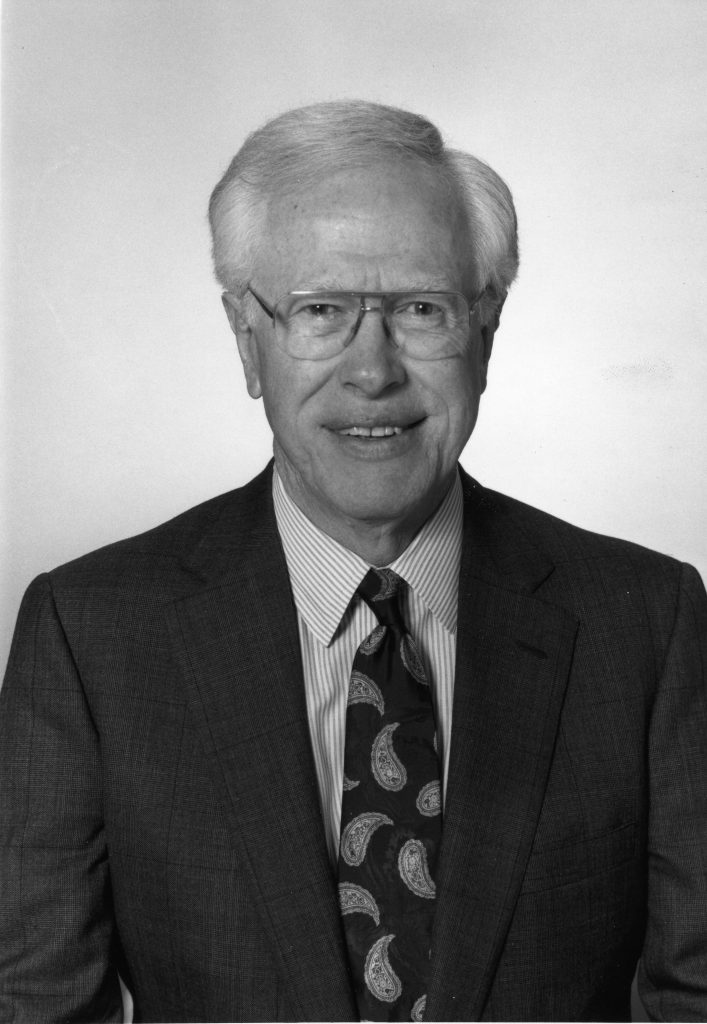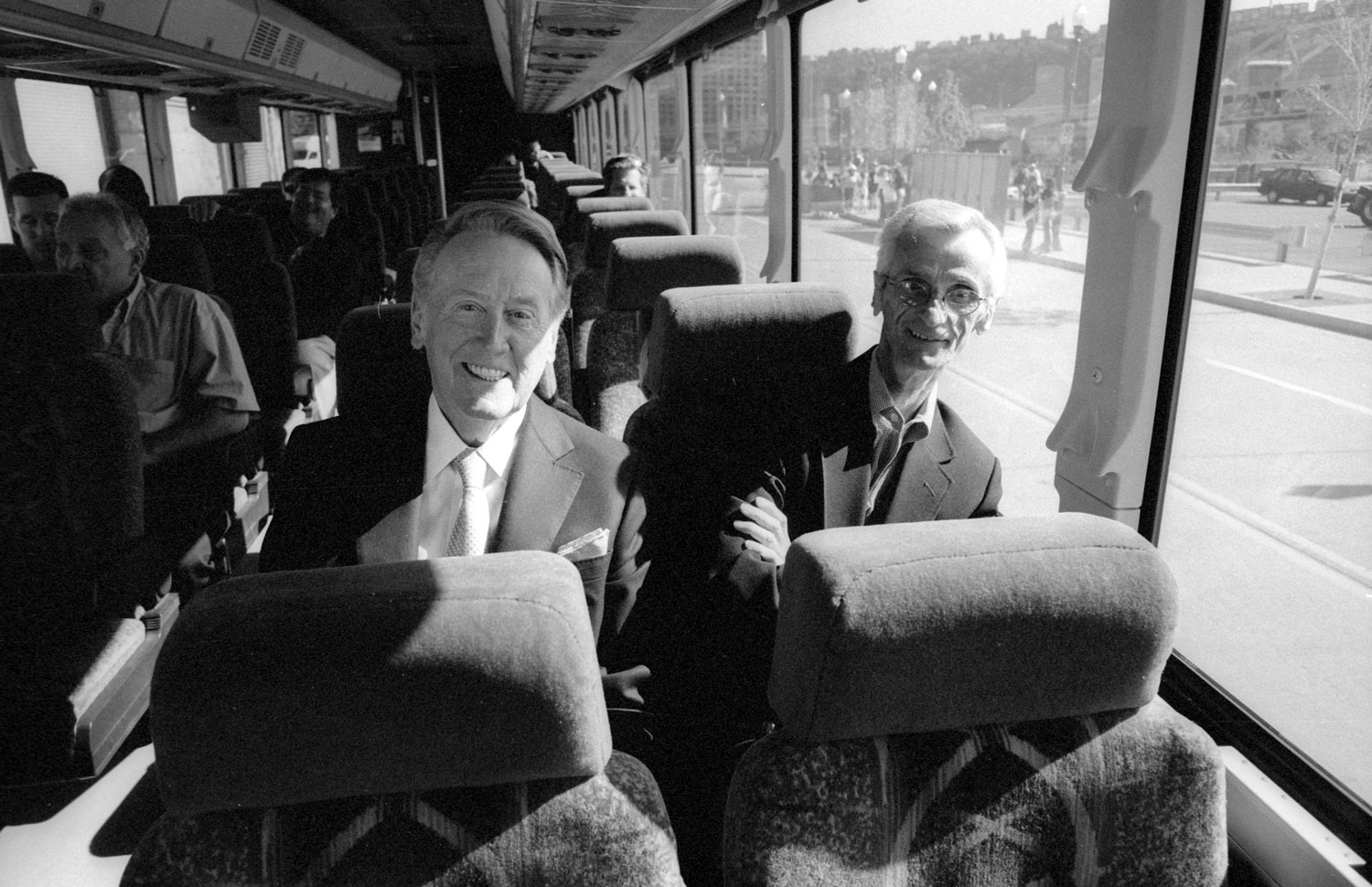
- Vin Scully and Billy DeLury (Jon SooHoo/Los Angeles Dodgers)
By Jon Weisman
Billy DeLury, a Dodger employee since 1950, the same year Vin Scully joined the organization, passed away Saturday evening. He was 81 years old.
“I was privileged to know Bill DeLury for more than 60 years,” Scully said, “from the time he was an office boy in Brooklyn and rose to become a most valuable member of the organization as our traveling secretary. A Dodger from head to toe. A respected baseball man. And a deeply religious husband and father. Anyone and everyone in baseball who knew Bill will mourn his passing and he will be truly missed.”
Said Dodger president and CEO Stan Kasten: “Billy’s consistent dedication and outstanding character were both an inspiration in our front office as well as a daily reminder of our roots in Brooklyn. His presence will be missed by all who knew him.”
A native of Brooklyn, DeLury began his career with the Dodgers on September 1, 1950 at age 17 after graduating from high school, employed by the organization both in New York and Vero Beach, starting out in jobs including laundry and the mail room. He received his first World Series ring in 1955 while, as he called himself, “an office boy.”
Working his way up the ladder, DeLury sold advertising for Dodger programs, then moved into the minor-league department under vice president Fresco Thompson, before becoming assistant ticket manager and, for more than 20 years, the Dodgers’ traveling secretary. His service with the Dodgers was continuous, save for his military duty from 1957-58. In recent years, he has served as an assistant to the broadcasters and to the traveling secretary.
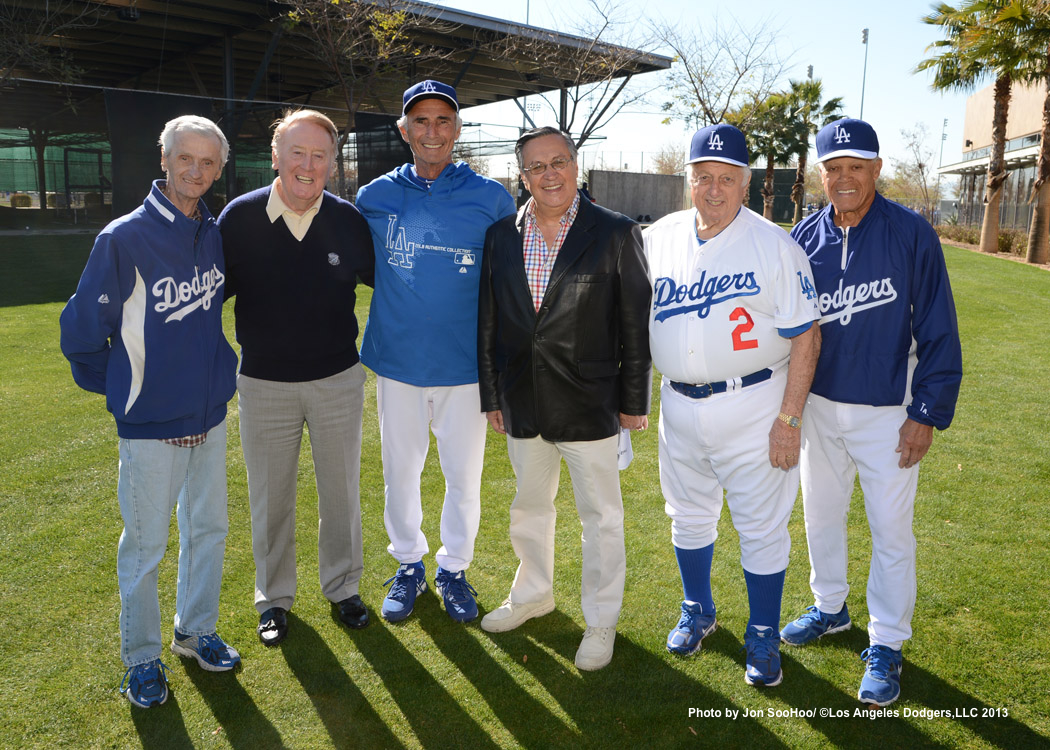
Billy DeLury with Vin Scully, Sandy Koufax, Jaime Jarrin, Tommy Lasorda and Maury Wills
A famous DeLury story involved him getting the assignment, while still a teenager, to leave the Polo Grounds in the ninth inning of the final game of the 1951 National League playoff between the Giants and the Dodgers, with Brooklyn ahead 4-1, to take the train back to Ebbets Field and begin distributing World Series tickets. When he arrived, there were no crowds, only a night watchman who told him of Bobby Thomson’s home run, which was dubbed the “shot heard ’round the world.”
Update: Jon SooHoo has posted some of his favorite photos of DeLury.

